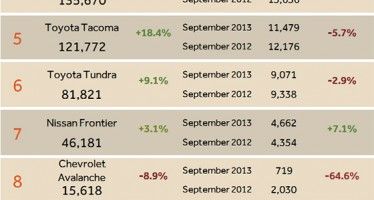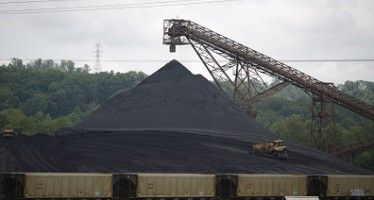Supreme Court allows L.A. County storm tax

 On May 5, the U.S. Supreme Court refused to hear another appeal in a case mandating tax increases to pay for stopping and cleaning up polluted storm water.
On May 5, the U.S. Supreme Court refused to hear another appeal in a case mandating tax increases to pay for stopping and cleaning up polluted storm water.
The L.A. County Supervisors have been playing hot potato with the highly unpopular stormwater tax mandated by the California Legislature in 2010 to deal with the cleanup. The mandate applies only in L.A. County under Assembly Bill 2554. The remainder of the state is not subject to storm-water cleanup.
Here’s the rate chart:
Storm Water Tax Schedule — Los Angeles County
| Property Type | Annual Stormwater Parcel Tax |
| Condominium | $20 |
| Single family residence | $54 |
| 7-11 convenience store | $300 to $400 |
| Elementary school | $8,000 |
| Big box retailer (15 acres) | $15,000 |
| Commercial building in downtown Los Angeles with high clay soil content | $200,000 or more |
| Sources: 1. http://www.presstelegram.com/breakingnews/ci_22058804/l-county-proposes-water-fee-all-parcels-clean 2. http://geosyntheticsmagazine.com/articles/0410_pan3_stormwater.html |
|
NRDC lawsuit
The tax stemmed from a National Resources Defense Council lawsuit filed in 2008 alleging the county was liable for pollution from storm water runoff. Subsequently, the U.S. Ninth Circuit Court of Appeals sided with the NRDC. In 2013, the U.S. Supreme Court agreed with the L.A. County Flood Control District in a technicality of how pollution “discharges” are defined.
Now, the May 5 decision ends the appeals.
The bill is an $8 billion tax over 20 years on L.A. County residents and businesses. The tax created a highly orchestrated storm of protests before the board in 2012. The protests oddly came from the L.A. Unified School District, teachers’ unions, nonprofit agencies and senior citizen groups affiliated with the Democratic Party.
They objected because school and other government property, normally exempted from taxation, would have to pay the storm tax. The Los Angeles Times reported:
“L.A. Unified Supt. John Deasy said in a letter that the district might reconsider its opposition if schools were exempted or got a fee reduction for investing in water quality improvement projects.”
In Jan. 2013, the supervisors dropped the tax by deferring a vote to put the tax on the ballot and threw the case into the courts.
Enforcement
However, enforcing the tax could be a problem. Courts are reluctant to order tax increases because that traditionally has been a power not exercised by the judicial branches of government, but rather is a power wielded by the legislative branches, then enforced by the executive branches.
One exception was the notorious Kansas City school desegregation case of the 1980s and 1990s, in which federal Judge Russell Clark effectively ordered tax increases to pay for better public schools for minority students.
In 1997, he canceled his order because the extra school spending didn’t improve academic achievement. Critics pointed out that the real problem wasn’t money, but structural problems with monopoly schools that didn’t face competition — something familiar today in debates over California schools.
The Kansas City schools case is crucial because, since then, courts have been less eager to step beyond their authority and force compliance with their orders through tax increases. If the L.A. supervisors refuse to enact the tax, a constitutional stalemate could ensue.
Jobs bill
Critics of the storm water tax say it will kill jobs. The California Metals Coalition, a manufacturers’ group, wrote in a 2013 letter:
“The California Metals Coalition (CMC) supports sound and measured approaches to achieving clean water solutions. We have many examples of storm water solutions implemented by metal companies that achieve this goal. But the Los Angeles County Parcel Tax for Storm Water essentially raises millions of dollars without engaging all stakeholders, providing transparency in the process, or presenting measurable goals. With over 2,000,000 Californians out-of-work, it is absolutely critical to spend limited resources from individuals and businesses in a well thought-out manner.”
Despite the economic recovery of recent years, California’s unemployment rate remains high, at 8.1 percent in March, almost double the rate before the Great Recession. And Los Angeles County’s rate is even higher, at 8.7 percent. So the threat to jobs from the new tax is real.
NRDC vs. jobs
The NRDC is the same environmental advocacy organization that threw the entire state into an adjudicated drought by shutting down water deliveries to protect the Delta smelt fish. That case was later thrown out of court due lacking any scientific merit, but only after the state suffered three years of drought and thousands of jobs lost. During the worst part, the city of Mendota’s unemployment rate was a Depression-level 40 percent.
After the Supreme Court’s action on the storm drain tax, it’s still unclear what will happen, including what tax could be imposed and how many jobs will be affected.
Related Articles
Will Prop. 23 kill American troops?
SEPT. 22, 2010 By JOHN SEILER You know a campaign is going ballistic when the terrorism threat is brought up,
Gov. Jerry Brown forcing electric car market in CA
Gov. Jerry Brown must be in the market for a Chevy Volt, Nissan Leaf or Tesla electric car. There could
How Obama energy rules hurt, help CA
On June 2, President Barack Obama announced his new rules to mothball “dirty” coal power plants so as to reduce




